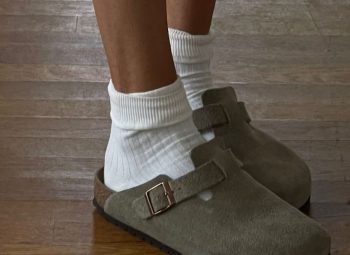Via Deposit Photos
If you’re looking for a drastic change or still sticking to your New Year’s resolution (and congrats to the second one, if that’s the case), then this new mindset of yours definitely includes losing weight and looking your best. However, with this cold weather backing us into our snack corner with a warm blanket, it is almost impossible to put in the work and actually shed the kilos.
Yet, if you are determined to lose those calories, it is crucial that you distinguish facts from the false-yet-heavily-marketed statements about how the human body loses weight. You should also remember that every person is different, with medical histories, metabolisms, and lifestyles playing a significant role in your weight. So, let’s get to know some facts and debunk some myths about the human body
1- Myth: cardio workouts help you lose weight
Most of us have been to the gym at one time or another. While some love it, others absolutely dread it. Almost every single gym-goer, though, begins their workout routine with cardio: hopping on the treadmill, doing jumping jacks, jumping ropes…etc. However, some tend to overdo it and spend hours on cardio, hoping to burn all those calories away. And, we can’t say we haven’t done similar things and rejoiced the number of calories we’d burned.
But here’s the interesting thing—while cardio DOES play a role in helping you lose weight, too much of it can reverse its effects. First, cardio gets your heart rate up and preps it for working out before burning immediate calories (i.e. the ones you gain throughout the day and will probably gain again before going home). However, do too much cardio (as in, more than 30 minutes), and you’ll cause your body’s T3 hormone (the body’s metabolism-controlling hormone) to deplete, which will make your body go into panic mode and begin holding onto its calories and fats. In turn, you’ll need A LOT of increased efforts to lose that extra weight and, even then, it’s not a guarantee
2- Fact: A combination of diet and exercise is the key to losing weight
Go to the gym all you want, jog day and night, but if you don’t switch up your diet to match your physical efforts, you won’t go far. You may think it’s a no brainer that you need to decrease the number of snacks you munch on as well as the amount of sugar and fats you consume, but the dietary process might be even simpler.
All you have to do, really, is expend more calories than you actually take in. Yes, it’s as simple as that. Just don’t tip your scales to favour working out over dietary changes and vice versa.”

Via Ambient Clock
3- Myth: A good breakfast and waking up early is key to losing weight
If you wake up late because you have a consistent night job, then chances are your body’s circadian rhythm will change itself accordingly. However, if you’re new to the night job life, you may face a few problems getting your body used to the change. Just make sure to prepare healthy meals and, if possible, try to eat before you start work because your body will have more time to turn those calories into energy.
For shift workers, things are a little different. Since it’s been proven that shift work, with all its irregularity, messes with your metabolism and can actually cause weight gain. One way to avoid this is to adjust your food units to fit within your work schedule. Sometimes, you need to eat more, which you should do, by all means. However, on days when you don’t have a shift, make up for the extra meals or snacks you ate by eating less.
4- Fact: building muscles helps you to lose weight faster
Now that you know the truth about cardio, it is imperative to have a balanced and structured workout routine at the gym to build your muscles. By doing so, your body will burn calories faster. Your arms, legs, torso, and every muscle in your body will have room to grow stronger, therefore making your body ditch the fats and tone up. But don’t forget the role of a healthy diet in all that! Don’t be frustrated if you don’t see the results you have hoped for at first.
5- Myth: The body stops burning calories at night time
As we said, the human body is intelligent and adjusts itself to your lifestyle, making sure to work accordingly. That means the world-spread myth that any food you eat at night goes straight to your fats-storage (belly, thighs, buttocks, etc.) is total nonsense.
If you are a creature of habit and consume food at night, your body will probably adjust to that. However, make sure you leave 4 to 6 hours between each meal, with your last meal of the day being at least 2 hours before your bedtime. Setting a routine for mealtimes will help your body adjust to the fat-burning mechanism better, which might mean you won’t gain weight that quickly.





